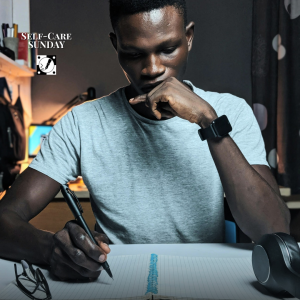The Weight of the Crown: Managing the ‘Strong Black Woman’ Trope Without Crumbling
3 min read
#SelfCareSunday
The “Strong Black Woman” is an archetype deeply ingrained in culture and history, often celebrated for her resilience, fortitude, and ability to endure hardship without complaint. She is the backbone of her community, the rock in her family, and the one who always has it together. While this image is born from a legacy of remarkable strength, it has become a heavy crown; a stereotype that places an immense psychological burden on Black women today, forcing them to carry the weight of impossible expectations. This article will critically examine the psychological toll of this trope and offer practical strategies for managing its pressures, embracing vulnerability, and ultimately, finding freedom.
The Psychological Burden
The pressure to be a “Strong Black Woman” can be a form of emotional armor that, while protective in some situations, prevents genuine connection and self-care. It often means suppressing emotions like pain, fear, and sadness, which are perceived as weaknesses. This constant emotional suppression can lead to a host of mental and physical health issues, including anxiety, depression, hypertension, and chronic stress.
The trope also creates a paradox: Black women are expected to be providers and protectors, yet they are often denied the space to be vulnerable themselves. This lack of a safe outlet for emotional expression can lead to isolation and a feeling of being misunderstood, even by those who love and rely on them.
Strategies for Unburdening Yourself
1. Acknowledge the Trope: The first step is to recognize the societal pressure and how it manifests in your life. Understand that the expectation to be endlessly strong is a stereotype, not a personal failing. Separating your identity from the trope allows you to give yourself permission to feel, falter, and ask for help.
2. Redefine Strength: True strength isn’t about enduring silently; it’s about acknowledging your limits and advocating for your needs. Redefine strength as the courage to be vulnerable. This includes seeking therapy, leaning on friends, and expressing when you are overwhelmed. Strength is also found in self-compassion. Recognize that you are not superhuman and that it’s okay to have bad days.
3. Set and Enforce Boundaries: The “Strong Black Woman” is often expected to be all things to all people. Learn to say “no” without guilt. Setting boundaries with family, friends, and even at work is crucial for protecting your energy. Remember, “no” is a complete sentence. You don’t owe anyone an explanation for prioritizing your well-being.
4. Embrace Vulnerability as a Superpower: Vulnerability is not weakness; it is the cornerstone of authentic connection. Sharing your struggles with trusted people gives them the opportunity to show up for you, strengthening your relationships. It also models for others that it’s okay to be human and imperfect.
5. Find Your Village: The trope often suggests that you must carry your burdens alone. Actively seek out a community, a “village” that allows you to be your full, complex self. This can be a group of friends, a therapist, or a support group where you are seen and valued, not for your strength, but for your humanity.








